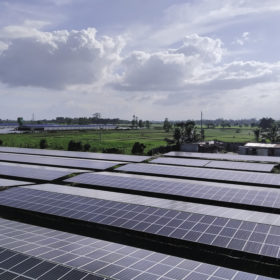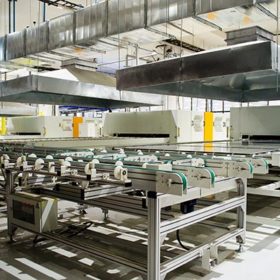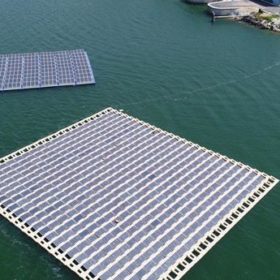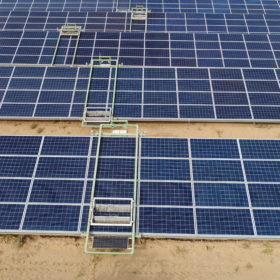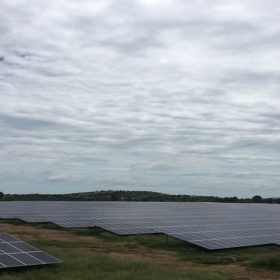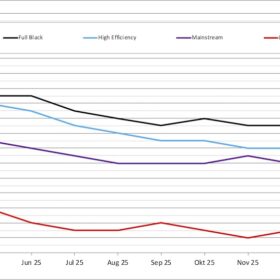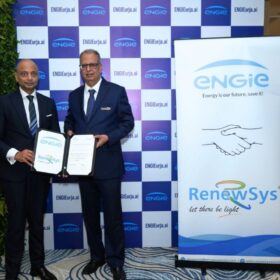India will add just 50 GW of solar in the next five years, according to company bosses
The expected return would leave the nation woefully short of its ambitious 175 GW clean energy target, which was laid down with a 2022 deadline. Chief executives who criticized aggressive clean power auctions said they would like to see more fossil fuel facilities thrown into the mix.
Indian coal majors to jointly set up 3 GW solar projects
Coal India Ltd (CIL) and NLC India—both under India’s Ministry of Coal—would form a joint venture with 50:50 equity participation to develop 5 GW of power assets, including 3 GW solar and 2 GW thermal.
SunSource Energy bags Lakshadweep’s largest solar-plus-storage project
The 1.95 MW solar plant with 2.15 MWh battery storage will power four islands of the union territory—Agatti, Kavaratti, BangaRam and Thinnakara.
India needs solar modules worth Rs 15,000 crore annually
The country—which meets over 80% of the solar module demand through imports—can turn the present crisis into an opportunity by ramping up domestic manufacturing with measures like fiscal incentives.
Prioritising clean energy will be key to economic recovery
Cost savings associated with switching to least-cost energy solutions like wind and solar can be redeployed for economic recovery. At the same time, building resilience on fronts like energy system design and supply-chain management is crucial to deal with unexpected shocks and crises.
Post Covid support required for electric vehicles: FICCI
The industry body has recommended a series of measures including a continuation of FAME II Scheme to 2025, short-term booster incentives for consumers and support for in-house R&D to boost the electric vehicle sector.
NHPC tenders EPC work for 50 MW floating solar project in Kerala
Domestic bids are invited for engineering, procurement and construction of a 50 MW floating solar project that shall come up over a 303-acre water body in Kollam District. Bidding closes on August 11.
Indian Railways tenders 1 GW ground-mount solar
Developers have until September 1 to bid for the tendered capacity that shall come up along railway tracks on railway land in various states.
Italy’s Enel scores its first solar win in India
The renewable energy developer—which owns and operates 172 MW of wind capacity in India—has claimed its first solar tender win in the country with a SECI award for 300 MW power.
Solarpack reveals record-breaking solar plant will be in Rajasthan
The Spanish developer, which will sell solar energy at an Indian record low tariff of Rs2.36/kWh under a 25-year deal has spoken to pv magazine about the specifics of the landmark PV plant.



